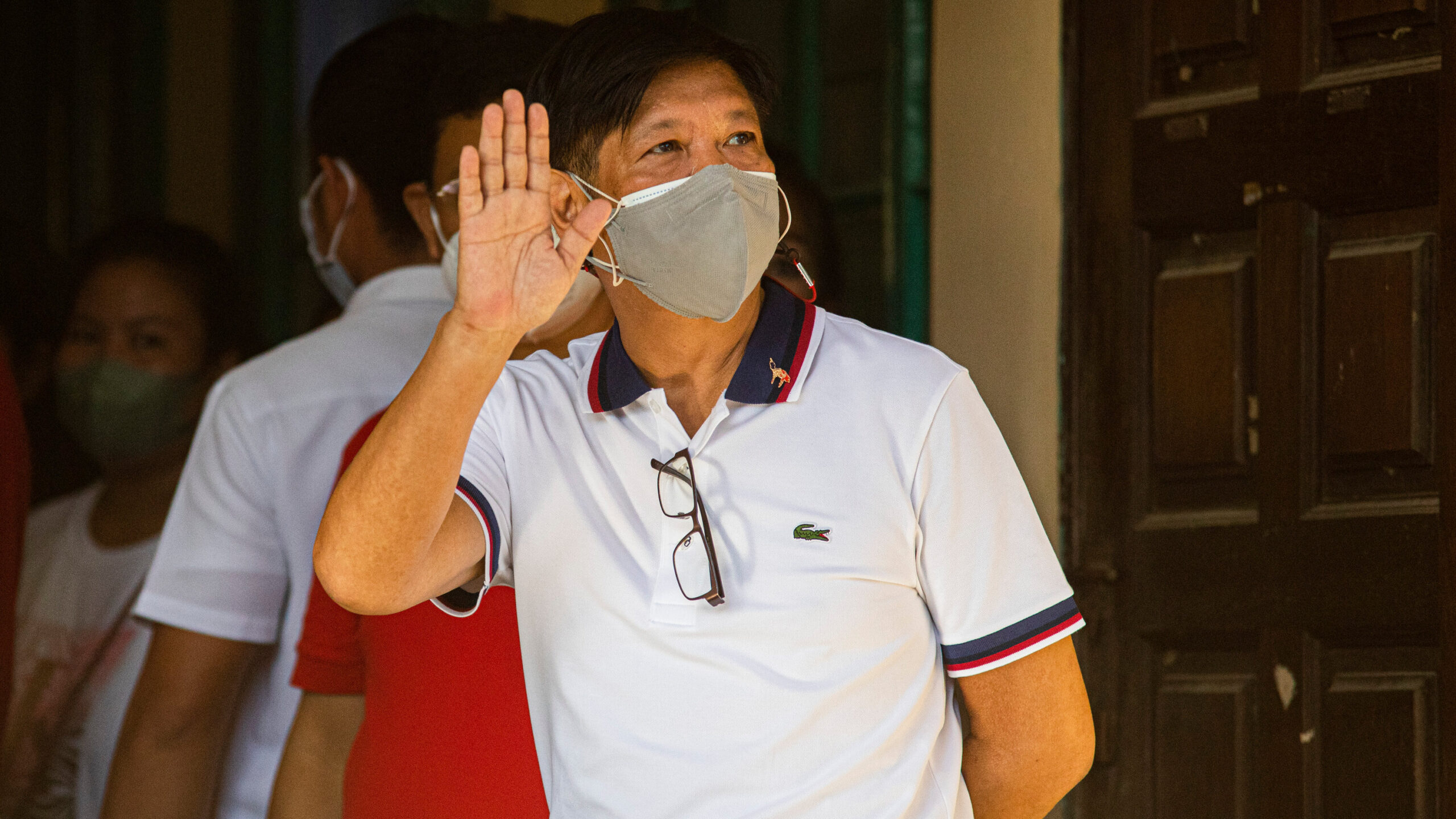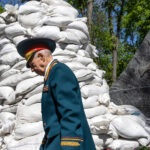
MANILA — Ferdinand Marcos Jr., the son and namesake of the ousted dictator, edged closer to a triumph in the presidential election in the Philippines on Monday as early election data shared by the government put him in a commanding lead over Leni Robredo, his closest rival.
With 75.7 percent of the election returns counted in a preliminary tally as of 10:47 p.m. Manila time, Mr. Marcos had 25.6 million votes, more than double that of his closest rival, Leni Robredo, the vice president. That put him on the path for the biggest margin of victory in a presidential race in the Philippines since the 1980s, when Corazon Aquino was elected in the wake of the ouster of Mr. Marcos’s father by the “People Power” uprising by millions of Filipinos.
But by the time polls closed at 7 p.m., accounts of alarming irregularities had been reported across the country: malfunctioning voting machines, insufficient numbers of backup machines, complaints that voters had been left off registration rolls, and that their ballots had been tampered with.
Mr. Marcos’s lead was so strong that it appeared extremely unlikely that Ms. Robredo could prevail. But in a speech to his supporters on Monday night, with days of official vote counting ahead, he urged patience.
“It’s not over yet,” he said. “Let us keep watch over our votes. And if I do get lucky, I am hoping for your unending help and trust.”
Mr. Marcos’s near victory is likely to lead to democracy regressing further in the Philippines, where democratic institutions have been obliterated or weakened under Mr. Duterte. Impunity could prevail — Mr. Marcos, who is known by his boyhood nickname “Bongbong,” has indicated that he would shield Mr. Duterte from an investigation by the International Criminal Court for a violent drug war that has claimed thousands of victims.
“Personally, I’m devastated,” said Sol Iglesias, an assistant professor of political science at the University of the Philippines Diliman. “This is a dashing of the hopes that there will be a U-turn away from the backsliding towards authoritarian rule that was begun by President Duterte.”
Spontaneous celebrations erupted outside Mr. Marcos’s campaign headquarters on the EDSA boulevard, where millions of Filipinos had gathered in peaceful protest against his father more than three decades ago. Supporters sang a martial law anthem, waved the Philippines flag and chanted Mr. Marcos’s nickname, along with Ms. Duterte’s: “Bongbong, Sara!”
The official count begins at 1 p.m. on Tuesday local time, and a winner is expected to be announced in the coming days. It remains to be seen if Mr. Marcos will claim victory before that process is complete.
Human rights activists, intellectuals and hundreds of thousands of young people had opposed Mr. Marcos’s bid for the presidency, fearing that democracy would regress even further under his rule. To many victims of the older Mr. Marcos’s brutal rule, his son’s win is tantamount to an erasure of their own experiences, because his family has spent years distorting their shared memory of the atrocities committed during the martial law era.
Before the election, every opinion poll had showed that Mr. Marcos would win the presidency and do so with the widest margin in three decades.
Mr. Marcos ran on a platform of unity, saying that he “would help Filipinos rise again.” But many of his policy proposals remain thin, and he has accepted few media interviews. He appealed to a public that has grown disillusioned with the country’s brand of democracy and its failure to address the basic needs of its citizens. Poverty is widespread, inequality has widened and corruption remains rampant.
Mr. Marcos served as vice governor, governor and congressman in Ilocos Norte, the family stronghold, for most of the period between the late 1980s and 2010. That year, he entered the national political scene when he was elected senator.




